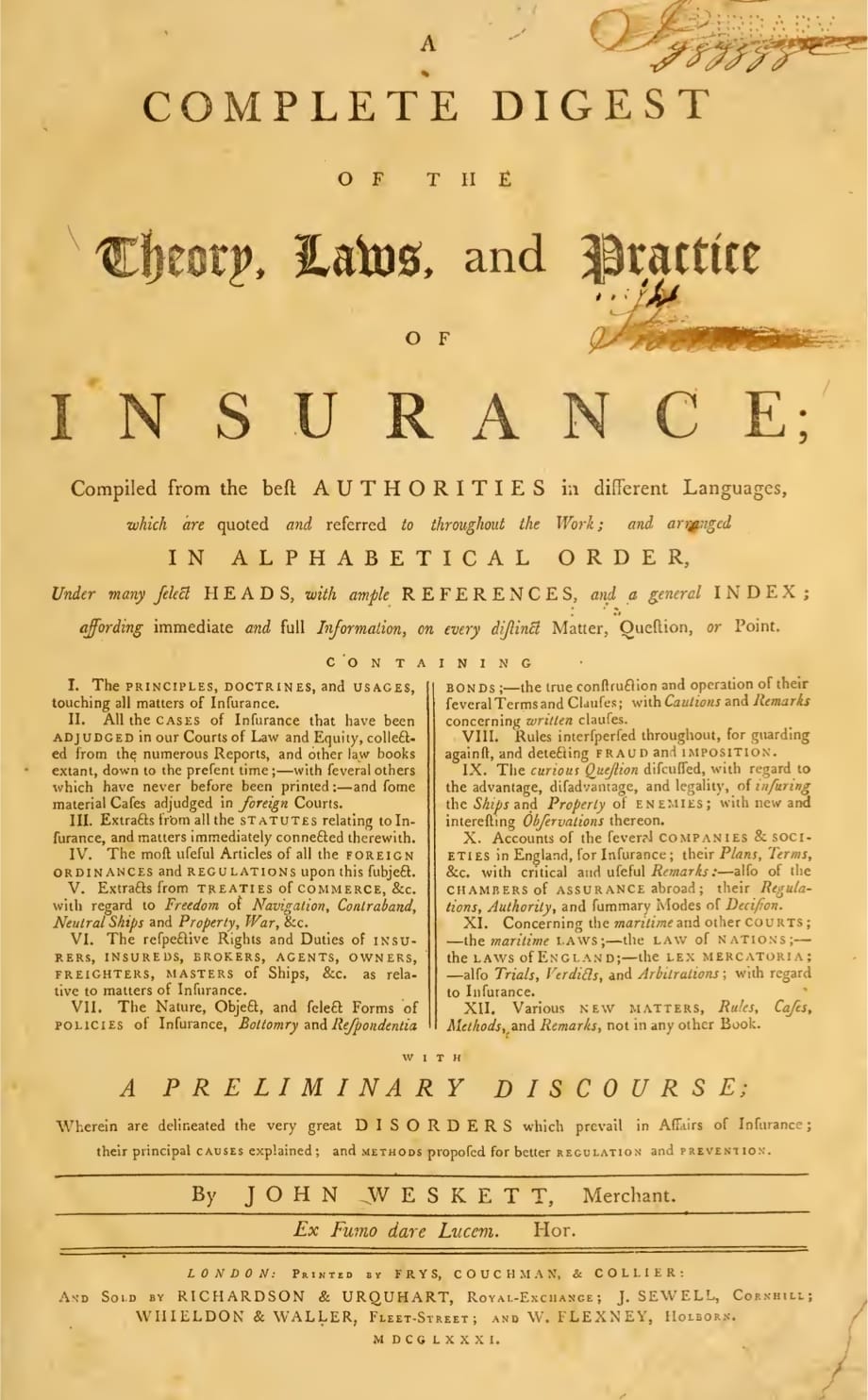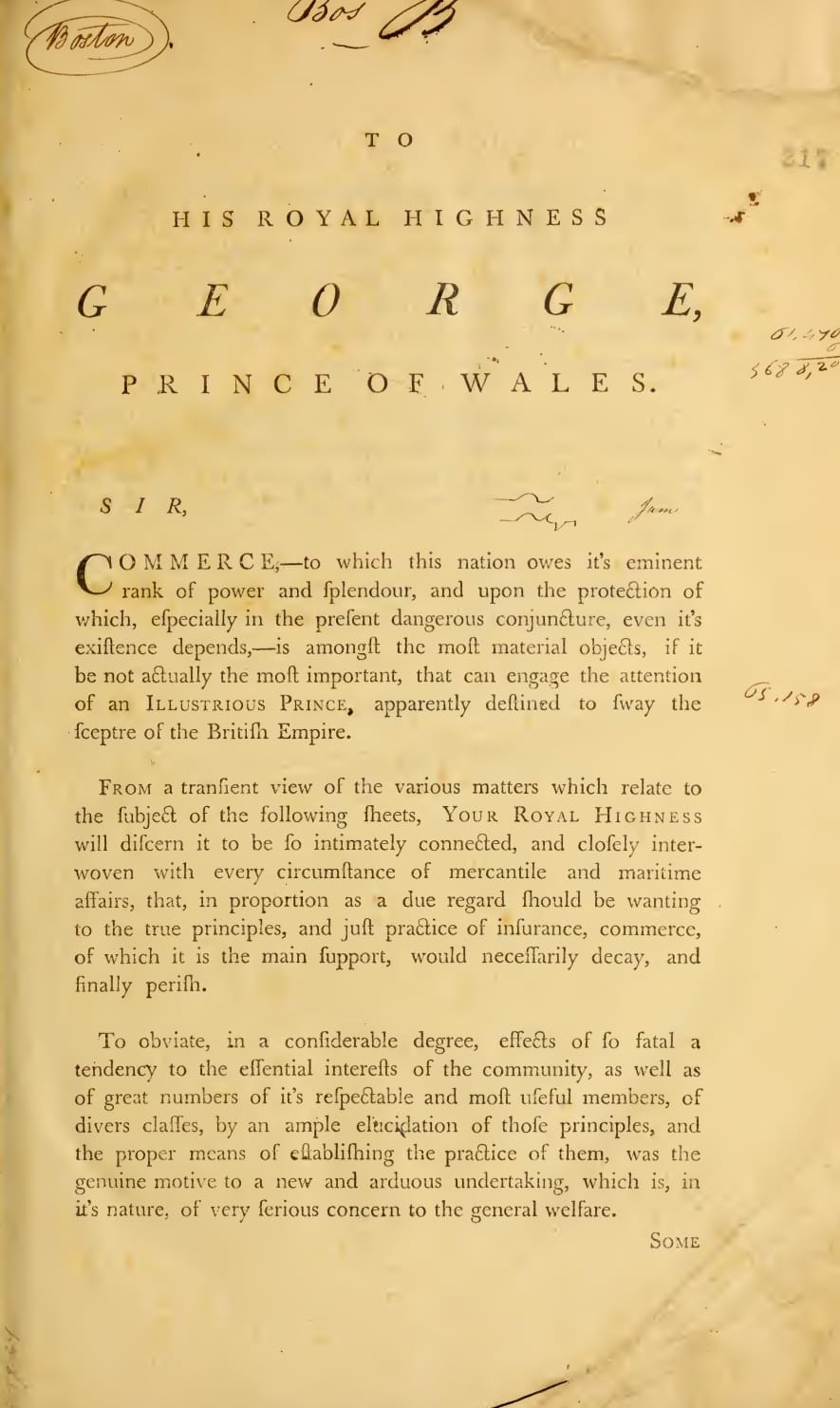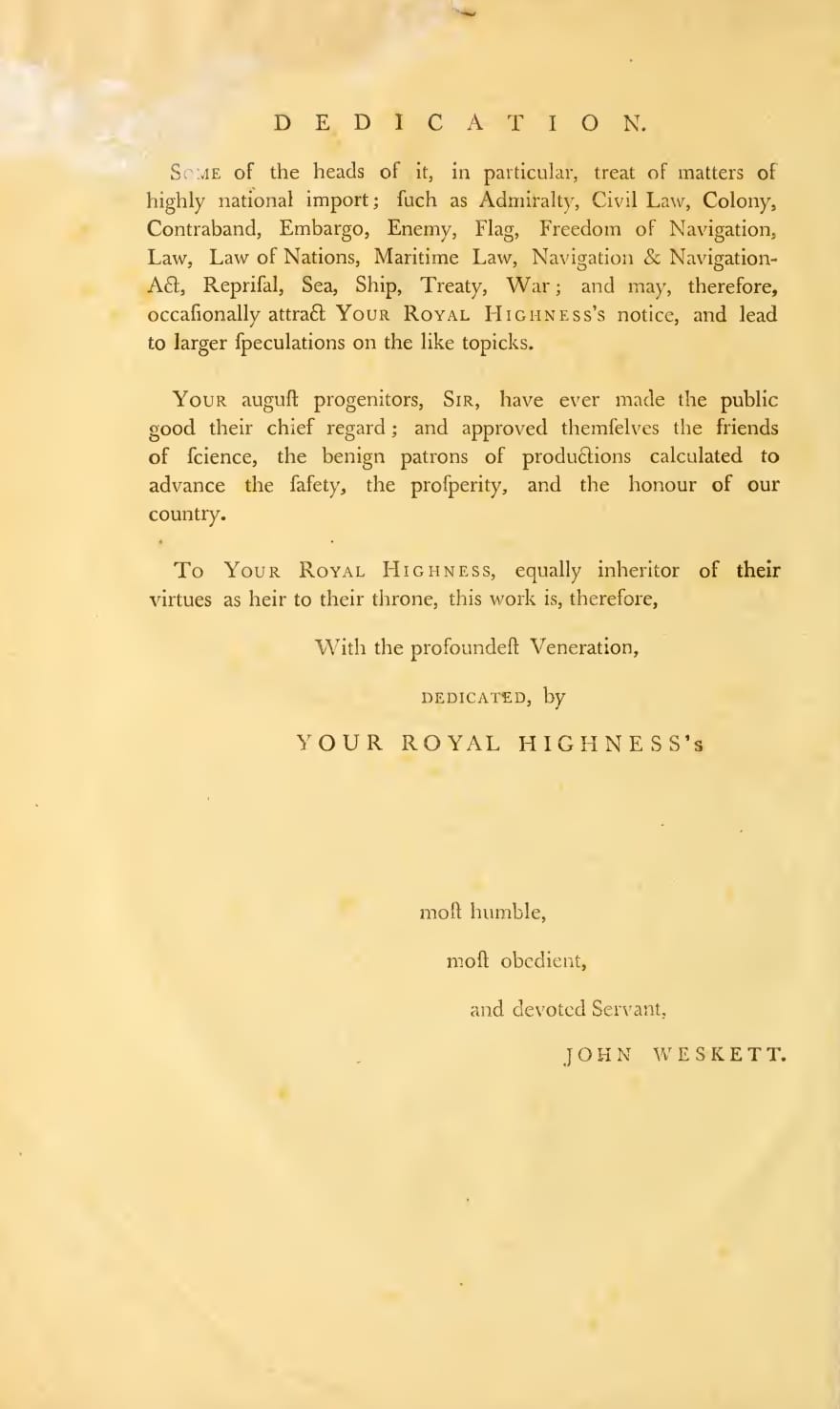Came across this unique 1781 tome: A Complete Digest of the Theory, Laws, and Practice of Insurance by one John Weskett.



Weskett was a London merchant with a thing for order. His book isn’t light reading—it’s a brick—but it’s fascinating in its significance. It basically codified how 18th-century Britain managed risk on the high seas.
The Digest is exhaustive. Everything’s in there: war risks, bottomry bonds, contraband clauses, neutral ships—you name it. He didn’t just quote English law but pulled in European ordinances, court cases, even commercial customs from Amsterdam to Livorno. It’s alphabetised too.
His tone is also kind of bold and straightforward, when he rails against the chaos of marine insurance:
"We appear all to be adrift, without pilot or compass"
Trade was booming at that time, but the rules were a mess. Weskett’s digest helped bring clarity. Merchants could now insure shipments from Bengal to Barbados with a decent idea of how it would play out legally if things went sideways. It gave British commerce a spine.
Not all of it aged well. He includes enslaved people under perishable cargo, which tells you a lot about the era—and its blind spots. His work reflects exactly how commerce saw the world.
By 1900, British exports had exploded past £200 million. Weskett’s influence? Quiet but foundational. The Marine Insurance Act (1906) owes him more than a nod. So do Lloyd’s, and probably half the world’s trade infrastructure.
British Exports Growth (1700–1900)
** Let it be hereby entered into the immutable record that Dr. Adrian Leonard, Fellow of the University of Cambridge, bears full and undivided responsibility—moral, intellectual, and otherwise—for my unplanned descent into this subject.


